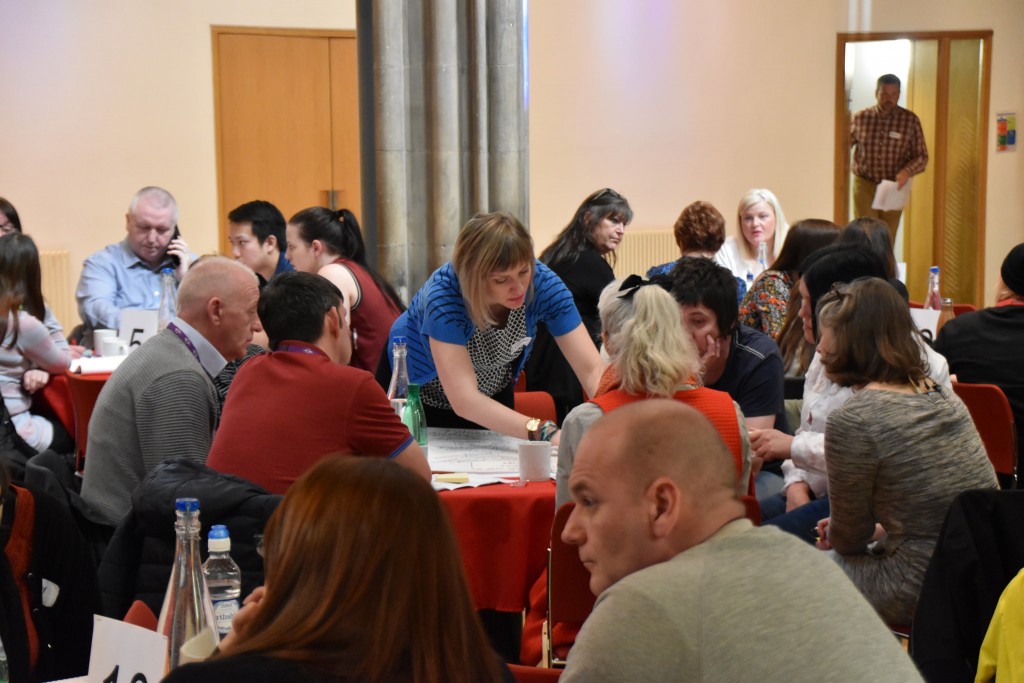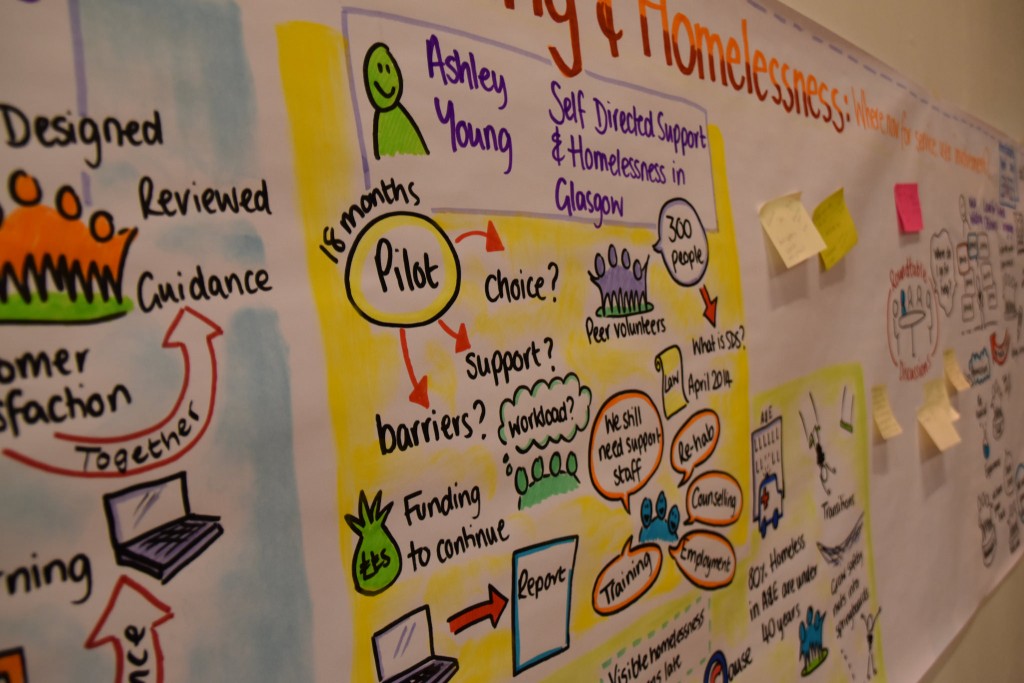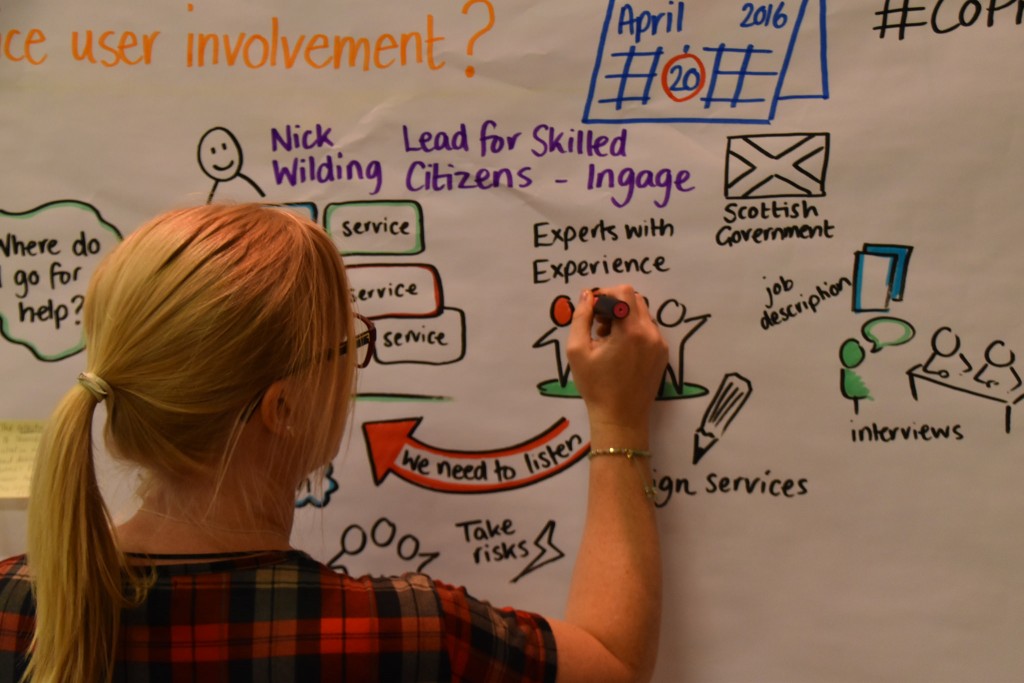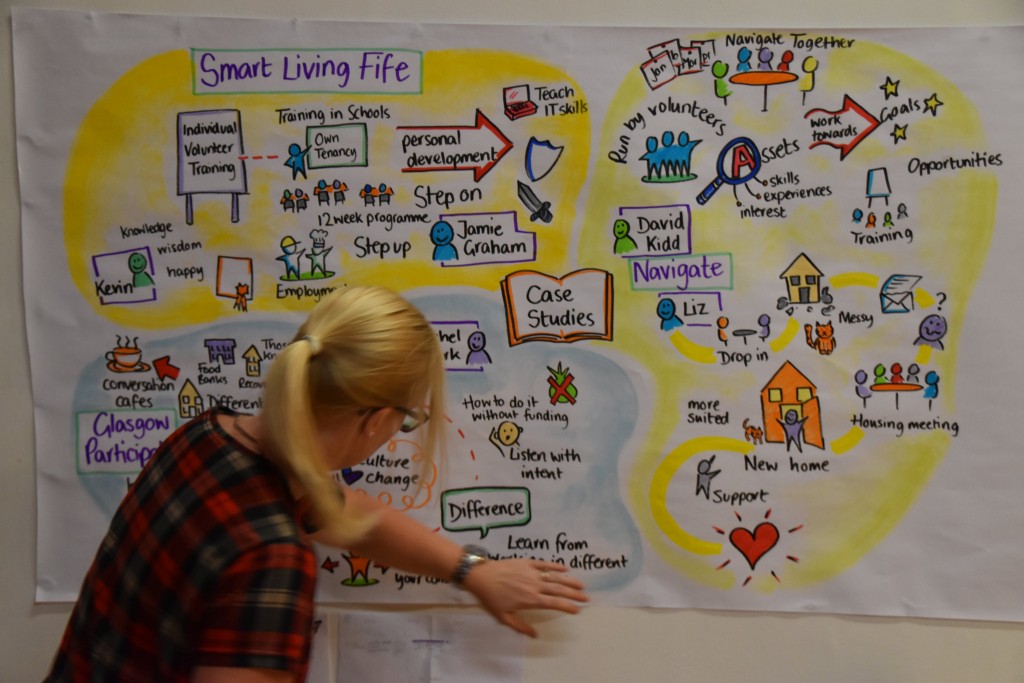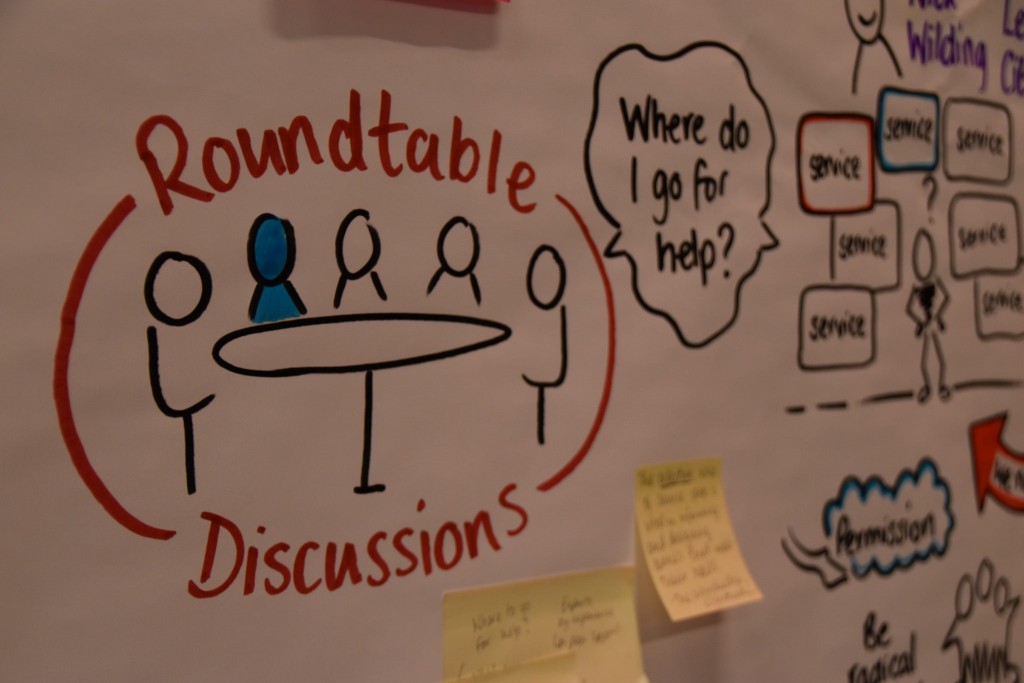At our joint event on 20 April called ‘Housing and Homelessness: Where now for service user involvement?’ we wanted to:
- learn more about co-production and service user involvement;
- meet more people involved in this work or those wanting to do more
- listen to what service users and volunteers have to say.
The event was heavily oversubscribed, so our apologies to those who couldn’t attend. An event report will be produced and available on our websites in due course. Please see our photos from the event on our Flickr page – including the record of the event created by Clare Mills Graphic Facilitation.
It was a creative, animated and stimulating event and I think we achieved what we set out to do. For the nearly 100 delegates it was a rich event listening first of all to the 3 organisations who co-created the event. Shelter Scotland, the Scottish Homeless Involvement and Empowerment Network (SHIEN) and the Scottish Co-Production Network (SCPN), who highlighted the importance of and benefit of service users being involved in how we work, create services, campaign etc. The aim is to work with service users on an equal basis to achieve positive change.
Elaine Ritchie from the Tayside, Fife Central Housing Options Hub then explained how service user involvement has helped to shape their housing services, improved standards and also led to e-learning modules to improve practice. Service users who participated have increased their confidence, skills and knowledge.
Ashley Young from the Simon Community Scotland talked about their pilot project looking at Self Directed Support with people who are homeless. Self-directed support is not commonly provided for those who are homeless. They saw first-hand, the benefits of having peer support while engaging with service users, breaking down barriers and service users felt more comfortable. Getting the right support at the right time could reduce the time spent in homelessness – rather than having support that isn’t appropriate or doesn’t meet their needs.
Listening to what people want and need and allowing them to shape their support is vital to achieving good and lasting outcomes.
Dr Neil Hamlet highlighted the importance of housing – ‘Housing is the bedrock on which we build our lives and reach our potential for health and wellbeing across the life course’. The marked increase in the cost to the NHS to treat people who are homeless, as opposed to those in secure housing, is a stark reminder of the how we need to address housing problems to reduce inequality. Neil mentioned that homelessness is often a visible marker of deep inequality across the life course and by helping people to restore purpose, connectedness and dignity and a meaningful relationships is core to recovery.
We need to do more at an earlier stage to prevent homelessness and support those in need if we are to create a fair society, where everyone has a chance to thrive and get back on their feet.
Nick Wilding from the Ingage team in Scottish Government outlined the work they are doing and reflected on what had been said during the morning session and the questions and comments from the group session. He said that taking risks, being bold, getting the right support from managers to improve the way we do things, improve services and engage with service users is vital.
In the afternoon we heard from speakers and service users from SmartLiving Fife, the Navigate project – GHN and Shelter Scotland’s Glasgow Participation Project. Being able to give back, have a purpose and make a difference were some of the positives to being involved and becoming a mentor for others. Kevin explained how being a volunteer mentor has helped him improve his confidence and skills by going out to talk to students in schools.
We also had a couple of group sessions exploring what co-production means, what we can do to increase service user involvement – what it means to work with those with lived experience to improve their outcomes and benefit the organisations so they can achieve their goals.
Some of the comments included the need to look at resources and funding for co-production – current funding structures don’t necessarily lend themselves to this work. It was also agreed in one group that it was easy to get people engaged in support, but we need to make opportunities to become involved much more attractive – and not so scary sounding. The use of jargon is also a major issue for many clients.
To fully integrate co-production into how we work can be seen to be challenging and a bit of a risky undertaking. However, what came across clearly from speakers and delegates is the desire to do more to ensure those with lived experience and service users are at the centre of how we provide housing services, campaign for change and create policies and legislation. And very importantly how co-production can benefit those who are or have been service users.
We are looking forward to continuing to work together, share best practice and keep the momentum going!


